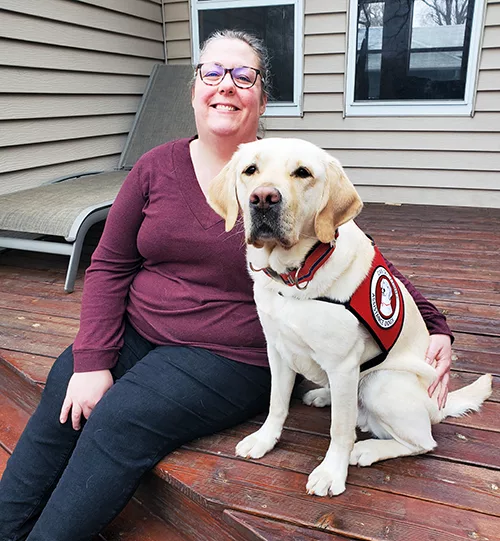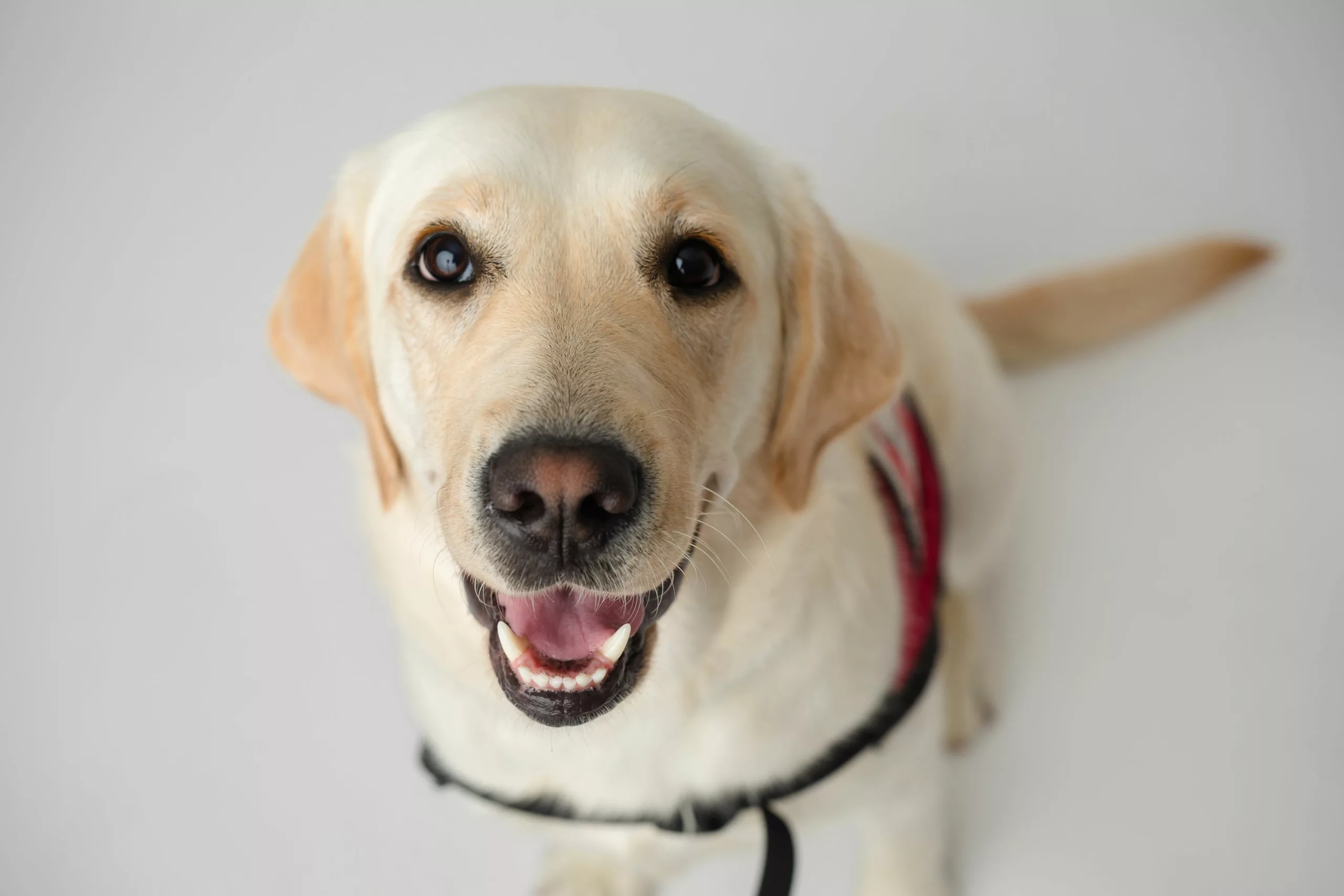“I am a huge dog-training nerd,” says Catie, referring to her excitement when she, her husband, and their son began hosting dogs in their home as Puppy Program volunteers for Can Do Canines five years ago. With her son in school more then, she explains, “I had some more space in my life to find new ways to engage in the community.”
Catie progressed to volunteering at the front desk, being a Volunteer Pack Leader, and serving in other ways. “Whatever was helpful,” she says. Yet Catie didn’t suspect that she would eventually interact with Can Do Canines in a different capacity.
Although she had already been experiencing medical struggles for decades, she admits, “It never occurred to me that I’d become a client.” She describes, “I experience chronic pain, muscle spasms/weakness, neurological issues, and fatigue related to a handful of medical conditions, including a connective tissue disorder, arthritis, and past injuries.” Even so, coming to terms with feeling worthy of an assistance dog was no easy feat for her. “My biggest concern was that I didn’t ‘deserve’ an assistance dog. I've talked to other clients about this, and I know I’m not alone. Many of us just kind of live and cope with the cards we’re dealt, and are unsure of how much help to ask for.”
 Reassured as an eligible and meritable candidate, Catie applied and one day, found herself meeting Mobility Assist Dog Virgil. “As soon as he walked in the door to ‘show off’ his skills with his trainer,” Catie remembers, “I could see it in his face: he was a sweet, eager, and gentle spirit.” She adds, “I don’t use the term ‘angelic’ lightly, but that’s what he is. There isn’t a mean bone in his body. He just really, really wants to work together as a team.”
Reassured as an eligible and meritable candidate, Catie applied and one day, found herself meeting Mobility Assist Dog Virgil. “As soon as he walked in the door to ‘show off’ his skills with his trainer,” Catie remembers, “I could see it in his face: he was a sweet, eager, and gentle spirit.” She adds, “I don’t use the term ‘angelic’ lightly, but that’s what he is. There isn’t a mean bone in his body. He just really, really wants to work together as a team.”
Whether Catie is working from her home office full-time as a lawyer or engaging in household tasks, her yellow Lab partner is busy as well. Catie shares, “Virgil spends his days picking up things I drop, and I drop a lot of things! He also helps me tidy up the house, put away laundry, and put away dishes. One of our favorite tasks is when he lays on top of me during my muscle spasms to provide compression. He’s a 60-lb heated, weighted, soft, snoring blanket that I don’t have to retrieve and manhandle on top of me. He “self-applies” and ALWAYS makes me feel better. He can also get a bag with my various as-needed medications, and find my husband if I need help.”
Virgil’s helpfulness is not restricted to their home. Catie relays, “At an appointment recently, I dropped my phone way behind my chair in the waiting room. It was such that I would have had to ask for help since I couldn’t move the sofa on my own. Instead, Virgil got it for me, and what could have been something that was painful and embarrassing for me turned into a fun game for him with a cookie at the end.”
In general, Catie has a sense of increased freedom when leaving her house. “I’m feeling more and more curious and less guarded out in the world.” Her added independence extends from personal to professional benefits. “For the first time ever, I feel open to traveling a bit for work.” Additionally, she explains, that she is “able to respond in the moment [to invitations from family and friends] as opposed to having to say ‘no’ since I hadn’t ‘planned’ the energy for that.”
Feeling “unbelievably grateful” for the gift of Virgil, Catie summarizes, “I feel freer and lighter now than I have in a long time.”
Thank you to all those who made this partnership possible:
Whelping Home — Diana Adamson and Paul Oberhaus
Raisers — Travis and Paula Dye, Sarah Riedel
Special Thanks — Federal Correctional Institution-Sandstone, University of Minnesota FETCH Program (Cecily Greblo, Anna Vandewettering)

 Victoria is Learning to Trust Siku for Sounds
Victoria is Learning to Trust Siku for Sounds




